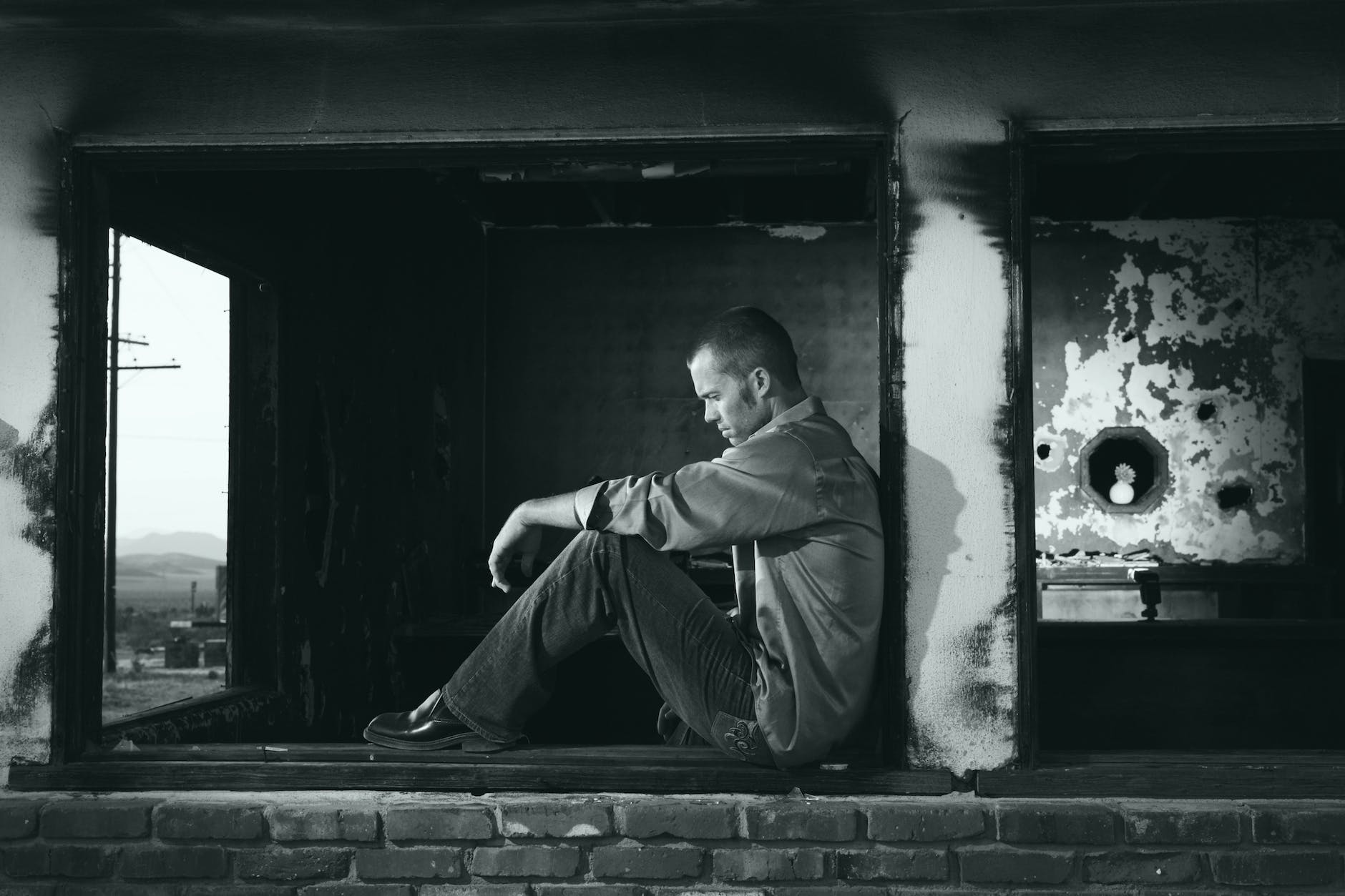Faith-Empowered Bible Verses That Can Help Support Recovery and Life Transformation
Step 9: Made direct amends to such people wherever possible, except when to do so would injure them or others.
James 2:14 – In Recovery, Faith Must Lead to Works
14 What use is it, my brothers and sisters, if someone says he has faith, but he has no works? Can that faith save him?
I will not mislead any of us about this part of the journey. This is usually a challenging and emotion-filled phase of the journey. This is also a part of the journey that many avoid, skip or completely give up because of. Some of us can even say it is the hardest thing we have done. The ways our minds try to convince us that we can avoid this formidable step.
Now we need more action, without which we find that “Faith without works is dead.” Let’s look at Steps Eight and Nine.
Alcoholics Anonymous pg. 76
No matter what you try to convince yourself and others is true; this is the next step on the recovery journey. A high degree of resistance usually indicates that a person is still working on Step Eight and needs work to be genuinely ready for Step Nine.
I will not mislead any of us about this part of the journey. This is usually a challenging and emotion-filled phase of the journey.
The reality for many is that the two steps are intertwined. We struggle through Step Eight, start working on Step Nine, and then hit a couple we recoil from, and we are back to Step Eight. Then we keep praying and working on being ready, get through those, then hit a few more that we resist. Again, we then go back to Step Eight again for those. This is normal if the list and the process are genuinely being done thoroughly and honestly.
They are so interlinked that the two steps are intertwined in their descriptions in the Alcoholics Anonymous book—the source document for all Twelve Step programs.

Matt 5:23-25 – Christians in Recovery and Step Nine
23 Therefore, if you are presenting your offering at the altar, and there you remember that your brother has something against you, 24 leave your offering there before the altar and go; first be reconciled to your brother, and then come and present your offering. 25 Come to good terms with your accuser quickly, while you are with him on the way to court, so that your accuser will not hand you over to the judge, and the judge to the officer, and you will not be thrown into prison.
If I had even a nickel for every time, someone dreamed up a way to tell me that followers of Christ do not have to do this because their sins were washed away, or saying things somehow makes them a new sin, or some way that the Bible is telling us we should not make amends to people.
The passage we are looking at is the words of Jesus to the masses. It clearly states what to do if someone has something against you. It even speaks of the idea that even if you are making an offering to God, and someone has a reason to have a grudge against you, stop what you are doing and go and make amends.
These are the words of Jesus, not some Alcoholics Anonymous guy
The entire premise of the Christian faith hinges on the idea that Jesus is the most significant offering to God in the history of humankind, and that changes the relationship everyone has with God. That offering himself says that offerings are not as good for the relationship with the Father if you know someone has something against you and you do not make amends.
These are the words of Jesus, not some Alcoholics Anonymous guy from a hundred years ago or some recovery program. These words are the recorded words of Jesus directly instructing us that amends are crucial for our faith journey.
The fact that it is recorded in the New Testament and directly from the mouth of Jesus demonstrates that this message is intended explicitly for believers. Making amends is a fact of the Christian faith described directly from the mouth of Jesus!
A faith-based; Christian recovery cannot be based on using that faith as an excuse NOT TO DO what Jesus said to do
A faith-based; Christian recovery cannot be based on using that faith as an excuse NOT TO DO what Jesus said to do. That is pure insanity. If your perception of Christian faith directly opposes what Jesus tells you to do, that faith is struggling to be called “Christian” because you are literally taking the “Christ” out of Christian.
That is probably more of our resistant thinking as people suffering with addictions and or suffering with alcoholism grasping at any straw to justify avoiding something we do not want to do.

Matthew 5:14-16 – The Faith Message and Recovery: Be a Useful Light.
14 “You are the light of the world. A city set on a hill cannot be hidden; 15 nor do people light a lamp and put it under a basket, but on the lampstand, and it gives light to all who are in the house. 16 Your light must shine before people in such a way that they may see your good works, and glorify your Father who is in heaven.
The polar opposite of using our faith as an excuse to avoid what Jesus told us to do is to try to make amends, a fiery sermon aimed at the person we are making amends to, to distract or hide from the amends.
It is seldom wise to approach an individual who still smarts from our injustice to him, and announce that we have gone religious. In the prize ring, this would be called leading with the chin. Why lay ourselves open to being branded fanatics or religious bores? We may kill a future opportunity to carry a beneficial message. But our man is sure to be impressed with a sincere desire to set right a wrong. He is going to be more interested in a demonstration of good will than our talk of spiritual discoveries.
Alcoholics Anonymous pg. 77
There is an old saying in faith circles: “They don’t care what you know until they know that you care.” They are not trying to say that you cannot ever speak about God or your faith journey toward recovery when making amends.
We must not kill the purpose and message of the amends with a fiery rant about finding God to people who are probably already questioning anything we think or do. That can be more of a message to avoid this God of ours and not a way to draw them into faith. This also overpowers the amends if it is reduced to another eye roll moment in a long list of them.
On the other hand…
We don’t use this as an excuse for shying away from the subject of God. When it will serve any good purpose, we are willing to announce our conviction with tact and common sense.
Alcoholics Anonymous pg. 77
The reality is that your faith is a huge part of everything happening in your life, and that faith is a massive part of the story. It is the tact and common-sense part that is critical here.
They don’t care what you know until they know that you care.”
There is a point of balance and the best time for that part of your message. The goal of this leg of your journey is “amends,” the reality is that deep within ourselves, many of us find our unconscious creatively looking for a way out with quiet desperation.
We all want to avoid doing it on some level. Don’t give in!

Romans 12:17-18 – Being at Peace With All is the Twelve-Step Journey
17 Never repay evil for evil to anyone. Respect what is right in the sight of all people. 18 If possible, so far as it depends on you, be at peace with all people.
On most of our lists, we despise at least a few people on some level. There may even be abundant reasons for us to feel this way. But avoiding these amends is not “going to any length” for recovery or being faithful to the actions Jesus has instructed us to accomplish.
It is harder to go to an enemy than to a friend, but we find it more beneficial to us. We go to him in a helpful and forgiving spirit, confessing our former ill feeling and expressing our regret.
Alcoholics Anonymous pg. 77
The early membership found these amends to be the ones that have the most benefit. Some of that benefit is overcoming our own resistance by faith and for God. Some are because we are working to overcome the resentment part of us and learning to let go of a darkness that is poisonous to our lives.
If possible, so far as it depends on you, be at peace with all people.

Matthew 5:43-46 – The Recovery Journey Requires You Love Your Enemy. So Does Jesus!
43 “You have heard that it was said, ‘You shall love your neighbor and hate your enemy.’ 44 But I say to you, love your enemies and pray for those who persecute you, 45 so that you may prove yourselves to be sons of your Father who is in heaven; for He causes His sun to rise on the evil and the good, and sends rain on the righteous and the unrighteous. 46 For if you love those who love you, what reward do you have? Even the tax collectors, do they not do the same?
Making amends to an enemy is not simply an act of getting a box checked. This act is a first action in learning to see them differently by looking through a different filter.
We shift from simply trying to passively aggressively punish a person from within the darkest hidden places in our minds to openly repairing ourselves and trying to repair the way we view them. We often find out that when we see the other person’s perspective, we may understand. In those cases, we set ourselves free more than anything we are freeing them of.
One thing that is an added level of growth is learning to be a positive example and influence to those people we find challenging. This is stated as a critical goal of the Ninth Step.
Our real purpose is to fit ourselves to be of maximum service to God and the people about us.
Alcoholics Anonymous pg. 77
With all we have discussed as a backdrop, we boldly go out and be the best living example of what the Bible has stated is how God wants us to live. We go to live the way the Creator created us to function. This is the key to overcoming our addictions and struggles, especially when we have to practice overcoming ourselves and go through with the hardest amends.
The is the recovery journey we committed to in a vow to God. Also, the faith journey outlined in the Bible as the ideal of a faith journey. These are things God instructed for everyone, not just people with addictions and alcoholism.
These are things God instructed for everyone, not just people with addictions and alcoholism.
It is one thing to say that to someone, but a whole other thing to live it out at such an extreme before someone who has serious questions about you and then for them to see it change your life. Once that person views the miracle of God working in your life, your living message speaks much louder than your words describing some faith activities that make people live better.
You are the message. The deeper you push through all of this, the deeper your message. You are not just cleaning out the darkness of your life that is an obstacle to your connection to God’s power that will give you recovery. You are cleaning up your message of faith that will make you of maximum service to God.
You are cleaning up your message of faith that will make you of maximum service to God.
That is the secret of all of the steps.

Luke 11:28 – Twelve-Step Recovery: Hearing the Word of God and Doing It Gets Blessings
28 But He said, “On the contrary, blessed are those who hear the word of God and follow it.”
The “He” here is Jesus, and the message is that there is a higher level of blessing for those who hear what God wants and do it. That is the message of all of the Twelve Steps. Taking action is putting works to the faith to get what God has promised to those who do.
This is not some recovery idea that people made up, this is a base concept that Jesus spoke, and the Bible teaches. Faith without works will not produce the same results. Faith without works is dead, and we might be too, if we don’t find some level of recovery. But amazing things happen if we are faithful to do as God has commanded.
If we are painstaking about this phase of our development, we will be amazed before we are half way through. We are going to know a new freedom and a new happiness. We will not regret the past nor wish to shut the door on it. We will comprehend the word serenity and we will know peace. No matter how far down the scale we have gone, we will see how our experience can benefit others. That feeling of uselessness and self-pity will disappear. We will lose interest in selfish things and gain interest in our fellows. Self-seeking will slip away. Our whole attitude and outlook upon life will change. Fear of people and economic insecurity will leave us. We will intuitively know how to handle situations which used to baffle us. We will suddenly realize that God is doing for us what we could not do for ourselves.
Alcoholics Anonymous pg. 84
We will suddenly realize that God is doing for us what we could not do for ourselves.




One response to “The Bible and Recovery: Divine Guidance Through Bible Verses for Finding Sobriety and Healing… (part 13: Step 9)”
[…] ◀️ Step 9 – Make Amends 🔗 […]